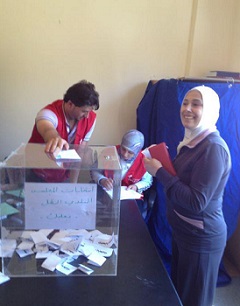LESSON
Lesson Learned: Youth Partnership for Improved Budgetary Governance in Lebanese Municipalities: Musharaka
The project involved a specific activity on how to conduct elections. This resulted in the democratic election of five Youth Shadow Councils which has boosted the culture of democracy among the citizenry and the beneficiary groups alike.


Project Name
Project Partner
Lebanese Transparency Association
Project Description
The project was a follow-up to an earlier initiative that targeted 15 municipalities in the six Lebanese governorates. Under the UNDEF grant, the project was an extension of the initial programme, more focused on the areas of Western and Northern Bekaa to ensure a greater impact at the country level. The aim of the project was to empower youth, and tje wider community through them, to render municipal councils of Western and Northern Bekaa more transparent and accountable. The project was divided into two phases: in the first phase, five democratically elected Youth Shadow Councils (YSCs) received thematic and technical training on good governance, advocacy strategies, conducting needs assessments, access to public services, and budget analysis. In the second phase, the elected council was responsible for training another group of participants in order to disseminate the principles of transparency and accountability and motivate citizens to advocate for reforms and get involved in their community’s development process. The project mobilized and trained 200 young women and men aged 17-29 in the municipalities of Der El Ahmar, Baalbeck, Taalbaya, Saadnayel, and Sawireh. It had a relevant and well-defined strategy with concrete indicators that facilitated the monitoring of achievement levels.
Report
Evaluation Date
October 2014
Theme
Country